Accredited Drug Treatment Centers in Langhorne PA

Navigating Addiction Treatment Options in Langhorne, PA
Langhorne, PA, offers a variety of accredited drug treatment centers equipped to provide comprehensive care for individuals struggling with substance abuse. Choosing the right facility involves understanding the different programs available, assessing accreditation, and evaluating patient reviews. This article will guide you through these considerations, ensuring you make an informed decision about addiction treatment options available to you or your loved one in Langhorne.
Understanding the Types of Addiction Treatment Programs
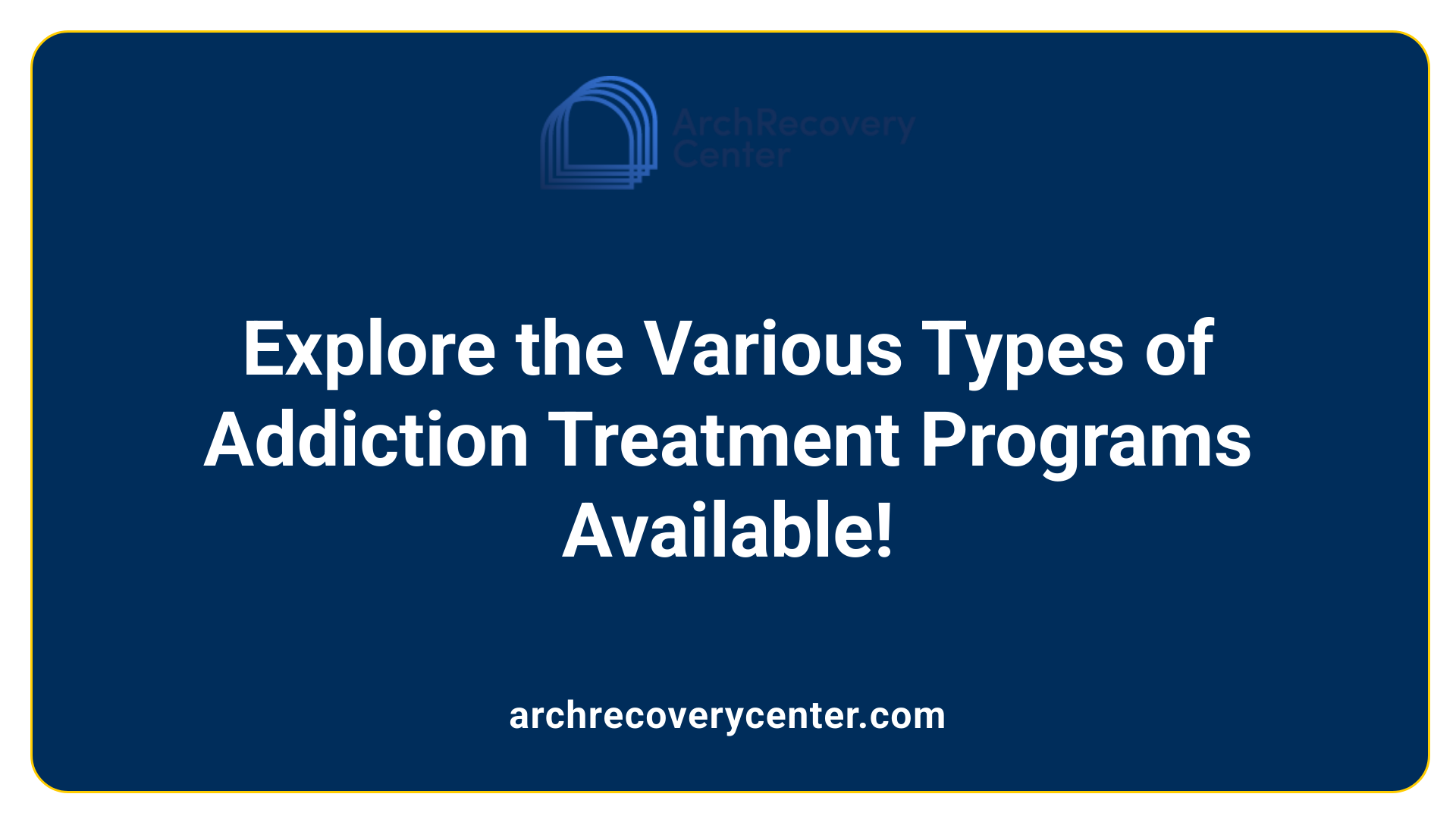
What are the different types of addiction treatment programs available?
Addiction treatment programs are diverse and can be categorized into several types to meet the needs of individuals seeking help. These include inpatient, outpatient, detox, and specialized programs, each designed to address specific challenges associated with substance abuse.
Inpatient Treatment
Inpatient programs provide comprehensive, residential care at treatment facilities. Here, individuals receive around-the-clock support in a structured environment, which is critical for those with severe addiction challenges or a history of relapse.Outpatient Care
Outpatient programs allow individuals to receive treatment while maintaining their daily routines. This flexibility is essential for those who have commitments such as work or family and still require therapeutic support.Detox Programs
Detoxification is often the first step in the recovery process, focusing on safely managing withdrawal symptoms under medical supervision. This stage is crucial for preparing individuals for subsequent therapy sessions.
Several therapy options are commonly incorporated into treatment plans, such as Cognitive Behavioral Therapy (CBT) and 12-Step Facilitation Therapy. These evidence-based practices, coupled with individualized counseling, help address co-occurring mental health disorders and contribute to a holistic recovery approach.
For those who face financial barriers, free rehab centers in Langhorne offer accessible avenues to crucial treatment services. Ensuring quality care, many of these centers possess accreditations from respected organizations like CARF or the Joint Commission, reinforcing their commitment to effective recovery programs.
Evaluating Inpatient vs. Outpatient Treatment
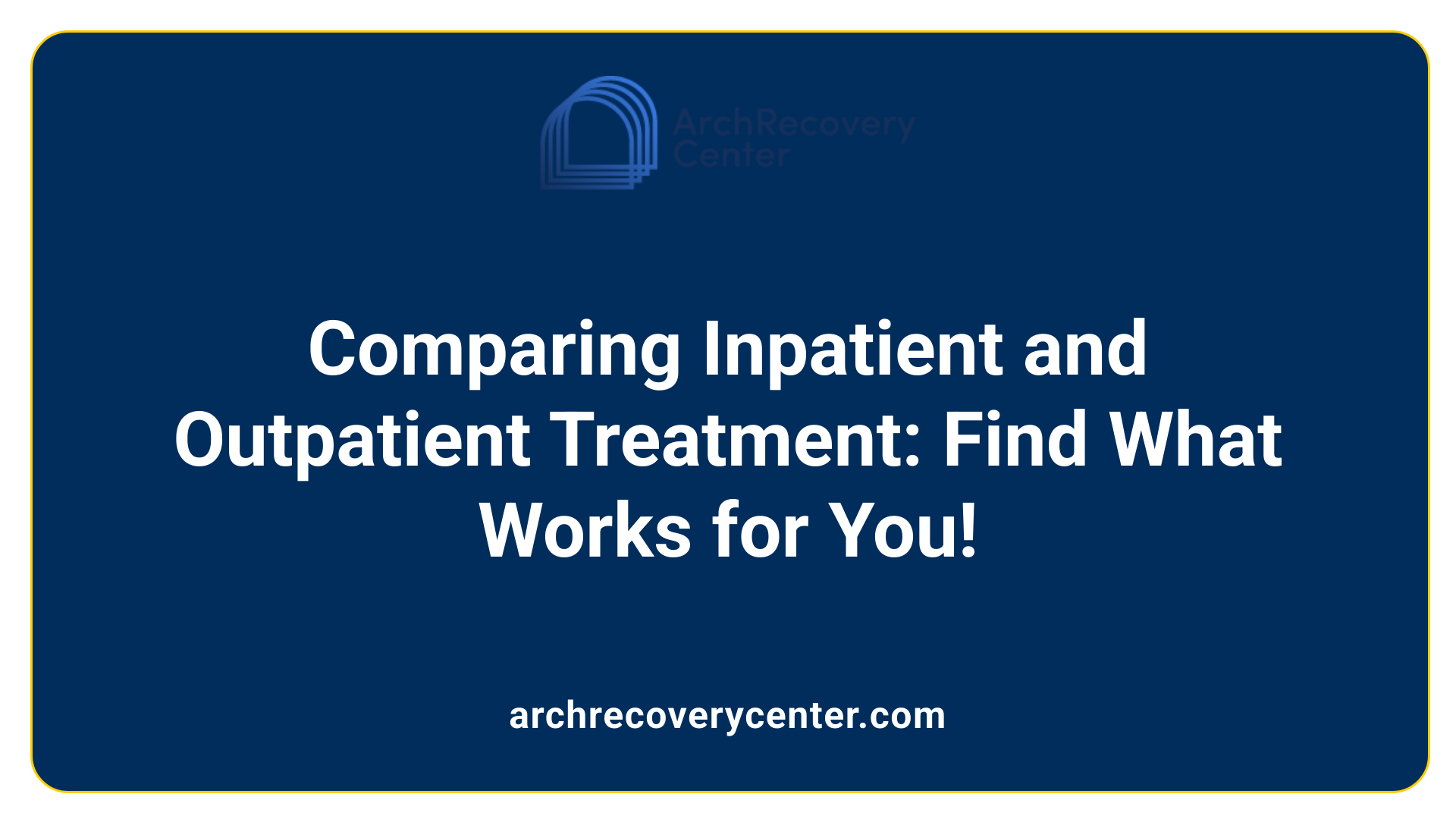
How do inpatient and outpatient treatment programs compare?
In Langhorne, PA, addiction treatment centers offer both inpatient and outpatient programs, each serving different needs in the recovery journey. Inpatient treatment provides a structured and immersive experience for those struggling with severe addictions or co-occurring disorders. Here, individuals receive 24/7 medical supervision, therapy sessions, and group support within a secure environment. These programs can last from several weeks to several months, focusing on intensive treatment.
Conversely, outpatient treatment offers flexibility, allowing individuals to maintain their daily lives while participating in scheduled therapies and support meetings. This format is often appropriate for those with milder addiction cases or those who have a strong support system at home.
Intensity and support offered
The level of intensity and support differs significantly between the two programs. Inpatient care includes:
- Comprehensive detoxification and medical monitoring
- Therapeutic activities designed to address psychological needs
- Support from healthcare professionals and peer groups throughout the day
While outpatient care allows attendance at treatment sessions a few times a week, it might not provide the same level of immediate medical assistance or support for managing withdrawal symptoms.
Appropriate programs based on addiction severity
Choosing the right type of treatment depends significantly on the severity of one's substance use disorder.
- For severe addictions, particularly linked to a history of overdose, inpatient programs are generally recommended due to their intensive nature and higher success rates in addressing immediate risks.
- For individuals with milder addictions or strong community and family support, outpatient programs can be effective, ensuring a balance of treatment and everyday life.
Ultimately, the journey to recovery should consider personal circumstances, the severity of the addiction, and the potential for a supportive home environment.
Importance of Accreditation in Treatment Centers
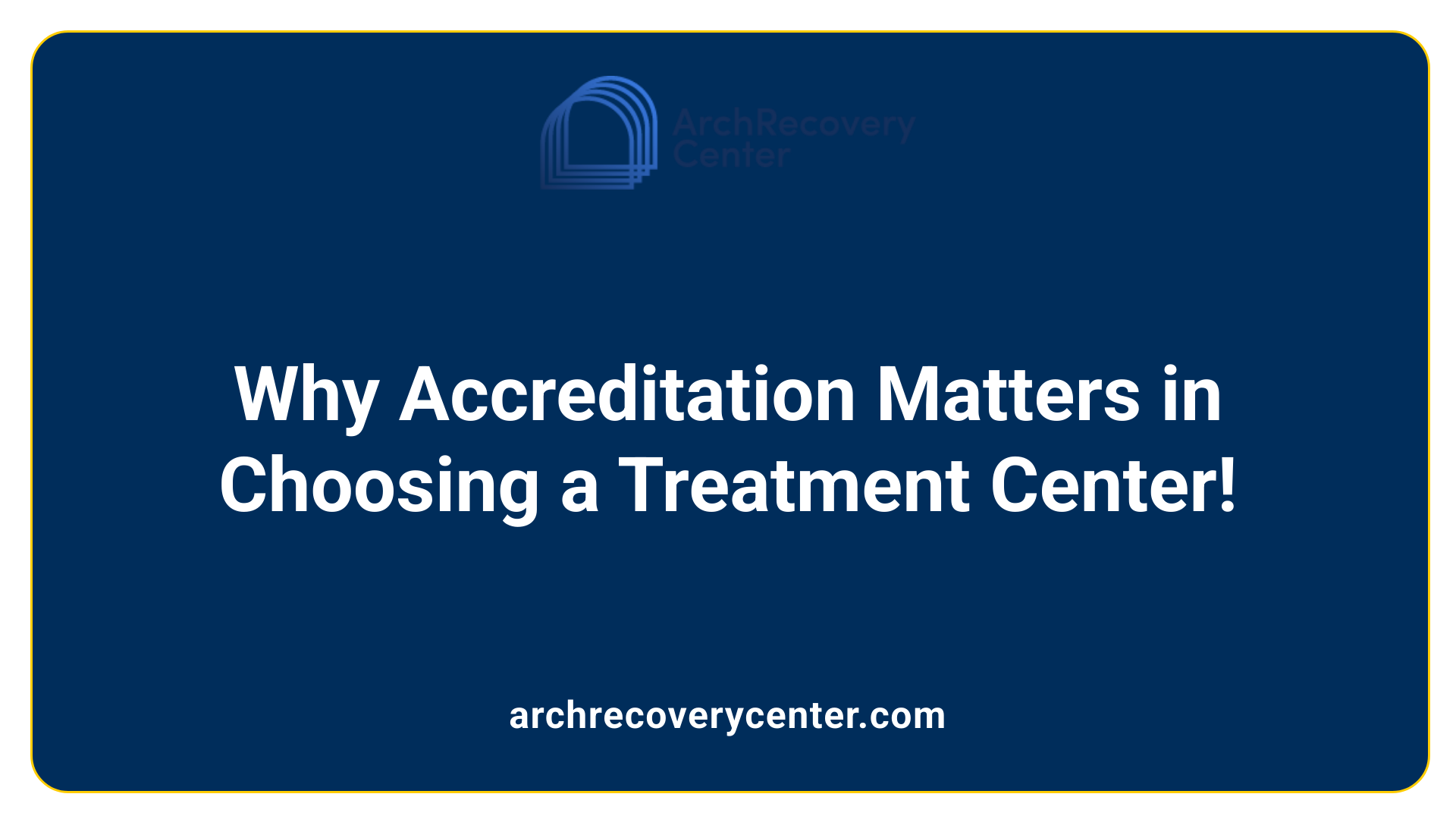
Are drug treatment centers accredited and why is accreditation important?
Yes, many drug treatment centers in Langhorne, PA, are accredited, with organizations like CARF (Commission on Accreditation of Rehabilitation Facilities) and the Joint Commission leading the way. Accreditation is vital since it indicates that a treatment center adheres to rigorous standards of care. This not only promotes safe practices but also ensures effective treatment programs are in place.
Accreditation brings significant benefits to both the treatment centers and their patients. For treatment centers, it enhances their credibility, making them more attractive to potential clients. Additionally, many insurance providers require accreditation for coverage, thus improving the financial accessibility of the services offered.
Patients can feel more confident selecting accredited facilities knowing that these centers are subject to regular evaluations. This evaluation process guarantees that they maintain high standards of care, have qualified staff, and employ evidence-based treatment approaches. Ultimately, accredited centers are connected with better patient outcomes, providing a stronger support system for individuals battling substance abuse.
Quality Assurance in Treatment Programs
Accreditation is a sign of quality assurance. Accredited drug treatment programs in Langhorne are more likely to provide a structured framework, focusing on individualized counseling and addressing outdoor co-occurring mental health disorders. Furthermore, involving family and the community in the treatment process enhances the sustainability of recovery. This holistic approach embodies the essence of comprehensive addiction treatment, reinforcing the critical nature of accreditation in drug treatment centers.
Financial Considerations: Insurance and Payment Options
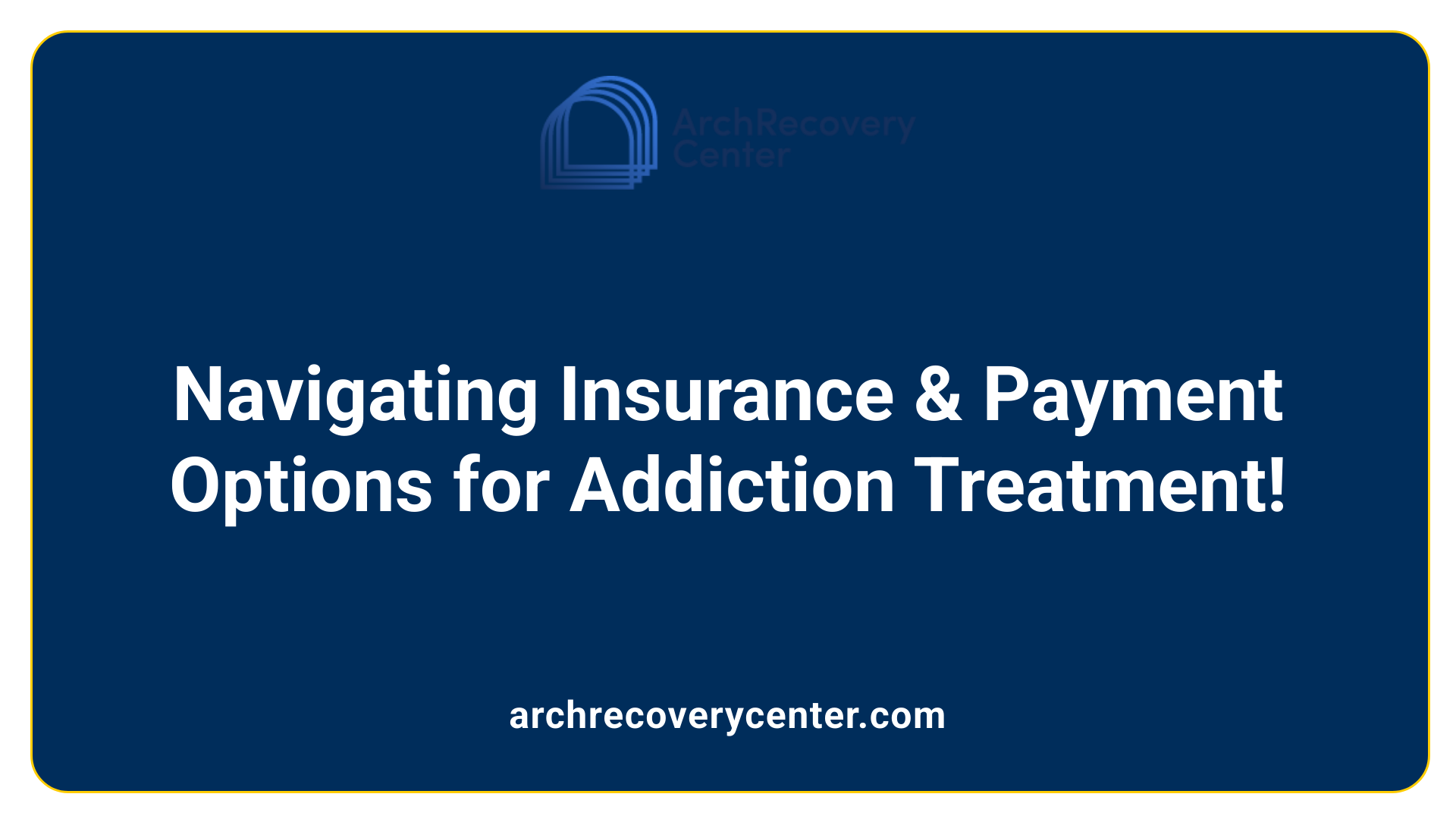
How do insurance and payment options work for addiction treatment?
Navigating the financial aspects of addiction treatment can significantly impact an individual’s ability to access necessary services. In Langhorne, PA, insurance coverage varies by provider and healthcare plan, but substance use disorder treatment is considered an essential health benefit under the Affordable Care Act. This means that many major insurance companies, including Aetna, Blue Cross Blue Shield, and United Healthcare, typically cover a range of addiction services.
For those who find themselves without insurance, there are still viable options available. SAMHSA’s National Helpline can provide referrals to state-funded or sliding scale fee programs, ensuring that individuals in Langhorne can still access treatment regardless of their financial situation. Many treatment centers, such as American Addiction Centers, understand the financial barriers faced by those seeking help and offer financing plans tailored to accommodate different budgets.
What are other financial assistance options?
In addition to insurance and state-funded programs, many treatment facilities in Langhorne also accept payments through major credit and debit cards, making treatment more accessible. Individuals are encouraged to verify coverage specifics with both their insurance provider and the chosen treatment center; this is vital for understanding any out-of-pocket costs they might incur. Affordable treatment options, including free rehab centers in the area, can play a crucial role in making recovery possible for those without sufficient financial resources.
Utilizing these resources can help overcome the obstacles posed by financial constraints, ultimately leading to effective treatment and support in overcoming substance abuse issues.
Addressing Co-occurring Disorders in Treatment
Integrated Treatment Plans
In Langhorne, PA, treatment centers increasingly recognize the importance of integrated treatment plans for those facing both substance abuse and mental health challenges. These plans are designed to address the complexities of co-occurring disorders effectively. By providing simultaneous care for addiction and mental health conditions, these programs aim to enhance recovery outcomes for individuals.
Focus on Mental Health
Mental health plays a critical role in the recovery process. Treatment facilities in Langhorne emphasize the significance of diagnosing and treating conditions such as depression or anxiety alongside substance use disorders. This dual focus encourages a comprehensive recovery approach that considers the individual's mental well-being while tackling addiction directly.
Counseling Services Offered
Counseling services are at the heart of Langhorne's addiction treatment programs. Individualized counseling is tailored to each person's unique challenges. Counselors work closely with clients to develop coping strategies and improve overall mental health resilience. Combining these services with family and community support nurtures a strong network that fosters long-term recovery.
Choosing the Right Center
When choosing a drug treatment center, consider the following:
- Types of Programs: Inpatient vs. outpatient options tailored to different needs.
- Specialization: Some centers focus on specific addictions or dual diagnoses.
- Accreditation: Check for endorsements from organizations like CARF or the Joint Commission.
- Qualified Staff: A team of experienced professionals boosts treatment quality.
- Transparency: Look for outcome data and operational history to gauge success rates.
- Cost and Payments: Assess options and insurance acceptance.
- Personal Goals: Define your treatment needs to find the best fit.
By considering these factors, individuals can select a treatment center that not only addresses their addiction but also provides support for any co-occurring mental health issues.
Community and Family Involvement in Recovery
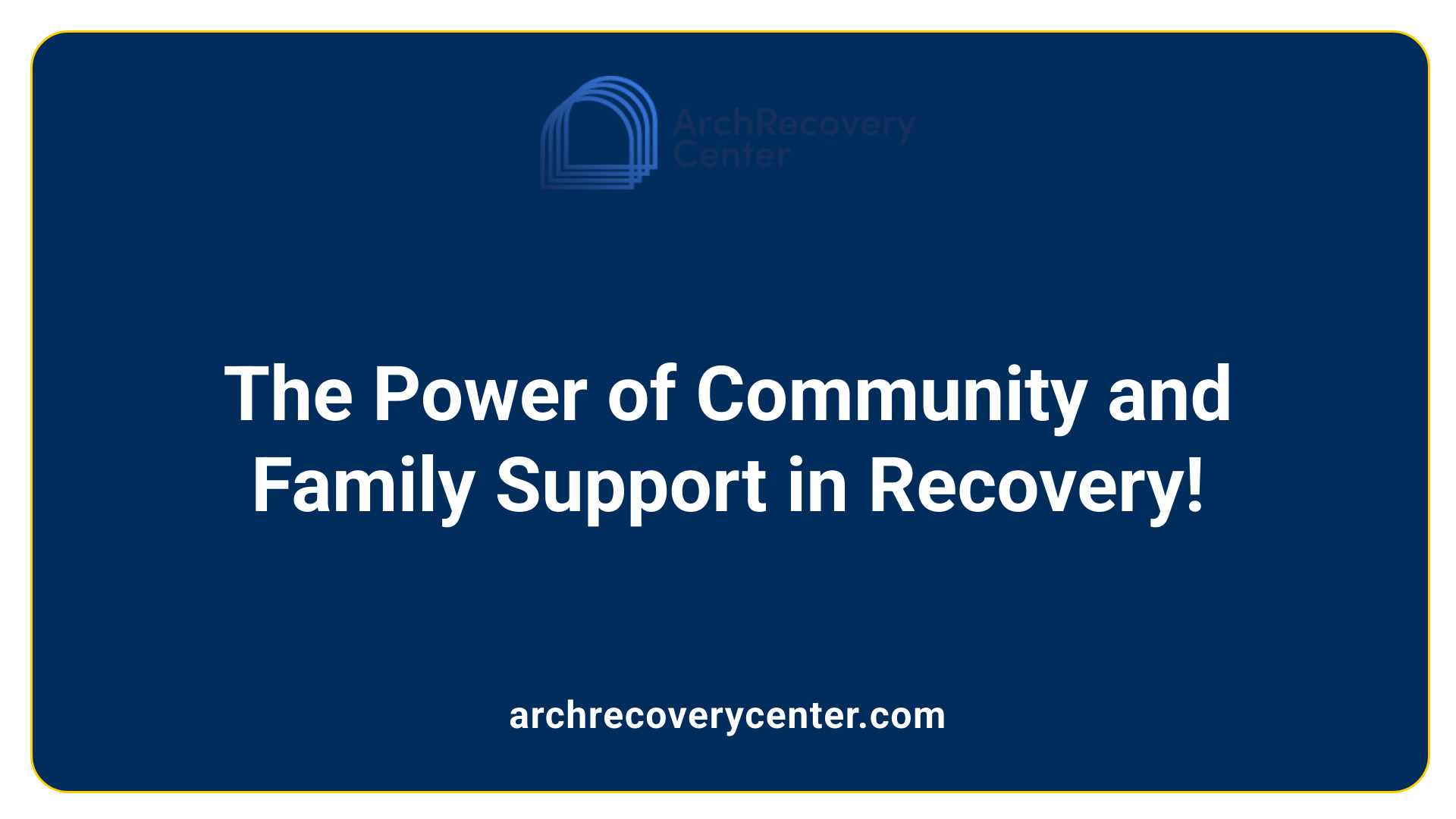
Importance of Support Systems
Support systems play a crucial role in recovery from substance abuse. In Langhorne, the integration of family and community into treatment plans enhances the recovery journey. Having a strong support network can boost motivation and accountability, significantly reducing relapse rates.
Family Therapy Programs
Many treatment centers in Langhorne offer family therapy programs designed to engage loved ones in the recovery process. These sessions aim to heal relationships, improve communication, and educate families about addiction. Involving family members not only fosters a supportive environment but also addresses any co-occurring mental health disorders that might exist within the familial structure.
Community Resources
Langhorne is home to various community resources that facilitate recovery. Local organizations often provide education, workshops, and peer support groups. These resources bridge the gap between treatment and continuous support, helping individuals maintain long-term sobriety. Access to free rehab centers also ensures that individuals without financial means can receive necessary care, making recovery accessible to everyone.
| Program Type | Description | Benefit |
|---|---|---|
| Inpatient Programs | Residential treatment with 24/7 support | Structured environment for recovery |
| Outpatient Programs | Flexible sessions allowing for continued daily life | Balances recovery with responsibilities |
| Detox Programs | Medical supervision during withdrawal | Safety during initial recovery phase |
| Individualized Counseling | Tailored sessions addressing personal issues | Focused recovery strategies |
Patient Reviews: A Guide to Quality and Experience
Why is patient review an important consideration?
Patient reviews play a pivotal role in the decision-making process for individuals seeking treatment for substance use disorders in Langhorne, PA. Many potential clients turn to online platforms like Yelp and Google to explore feedback from previous clients, making these reviews a crucial resource.
Understanding patient experiences
Reviews often reflect major themes that contribute to positive experiences, such as effective communication, the professionalism of staff, and long-term recovery outcomes. Positive reviews can indicate that a treatment center prioritizes quality care and supportive environments.
Conversely, there's a wealth of information to glean from negative feedback, too. Issues related to professionalism and communication frequently surface, serving as warning signs for potential clients. By addressing these concerns, treatment centers can make necessary improvements and enhance the overall patient experience.
Impact on treatment center choice
In Pennsylvania, patient ratings often reveal a bimodal distribution, exposing significant disparities in experiences across various facilities. Therefore, it is essential for treatment centers to actively engage with reviews, addressing client concerns and celebrating successes.
Ultimately, leveraging patient feedback not only assists in attracting new clients but also promotes a culture of continuous improvement among treatment providers, fostering trust and accountability in the recovery community.
Addressing the Urgency of Substance Abuse Challenges in Langhorne
Local statistics on substance abuse
Langhorne, PA, is facing significant challenges related to substance abuse, including alarming rates of drug overdose incidents. These statistics underscore the critical need for immediate access to treatment services. Many residents are caught in a cycle of addiction, emphasizing the importance of comprehensive support systems within the community.
Community efforts to combat addiction
In response to this crisis, several addiction treatment centers in Langhorne have stepped up to provide a range of services. These centers not only offer inpatient and outpatient programs but also specialized detox programs aimed at facilitating safe recovery. Some facilities even provide free rehabilitation options, making treatment accessible for those without financial resources.
Importance of timely intervention
Timely intervention is vital in addressing substance abuse, especially given the rising overdose rates. Treatment approaches in local programs include evidence-based practices and individualized counseling, which help tackle co-occurring mental health disorders. Community and family involvement are also emphasized, fostering a supportive network for individuals in recovery.
| Treatment Services | Focus Area | Accessibility |
|---|---|---|
| Inpatient Programs | Intensive support | Varies by facility |
| Outpatient Programs | Ongoing care with flexibility | Often open to all |
| Detox Programs | Safe withdrawal | Many offer free options |
| Individual Counseling | Personalized therapy | Available through local centers |
| Co-occurring Disorders | Addressing mental health alongside addiction | Integrated treatment, if needed |
With such varied resources available, it is crucial for residents of Langhorne to engage with these services promptly to enhance their chances for recovery.
Free and Accessible Rehab Options in Langhorne
Overview of Free Treatment Facilities
Langhorne, PA, is home to several addiction treatment centers that cater to individuals struggling with substance abuse, including free rehab centers. These facilities are designed to provide accessible treatment options, ensuring that even those without financial means can receive necessary help. The existence of these free programs is crucial, especially in light of rising drug overdose incidents in the area.
Eligibility and Access
Eligibility for free rehab centers typically involves assessment criteria that consider an individual’s financial status, level of addiction, and immediate needs. Many organizations offer sliding scale fees based on income, while others provide completely free services. Interested individuals can usually access these services by contacting the treatment facilities directly or visiting community health organizations for more information.
Benefits and Limitations
Engaging with these free rehab options offers numerous benefits:
- Accessibility: Provides immediate support for individuals in need.
- Comprehensive Care: Often includes a combination of inpatient and outpatient programs, detox services, and individualized counseling.
- Community Support: Many programs emphasize family involvement to bolster recovery.
However, limitations do exist, including:
- Waiting Lists: High demand can result in delays for available slots.
- Resource Constraints: Facilities may have fewer amenities compared to private centers.
In summary, while free rehab centers in Langhorne offer valuable services, it's essential for individuals to understand the potential challenges as they seek help in their recovery journey.
Evidence-Based Practices at Langhorne Treatment Centers
Incorporation of Research-Backed Methods
Langhorne, PA, has become a beacon for individuals seeking treatment for substance abuse, particularly due to the integration of evidence-based practices in its drug treatment centers. These centers utilize proven therapeutic methods that have been validated through rigorous research, ensuring that patients receive effective care tailored to their needs.
Effectiveness of Evidence-Based Treatments
The effectiveness of these treatments is underscored by outcomes demonstrating significant reductions in relapse rates and improved mental health among participants. Programs that employ evidence-based techniques, such as Cognitive Behavioral Therapy (CBT) or Motivational Interviewing, show that patients engage more in their recovery and experience long-term success.
Case Studies and Outcomes
Several case studies from Langhorne’s addiction treatment facilities highlight the successful application of these methods. For instance, centers accredited by organizations like CARF and the Joint Commission often report higher patient satisfaction rates and lower readmission numbers, showcasing the real impact of focusing on research-backed treatment options. By combining individualized counseling with fundamental community and family involvement, these centers effectively address not just addiction but also co-occurring mental health disorders.
| Treatment Method | Description | Expected Outcomes |
|---|---|---|
| Cognitive Behavioral Therapy | Restructuring negative thought patterns | Reduced substance use, improved coping skills |
| Motivational Interviewing | Enhancing patient motivation to change behavior | Increased engagement in treatment programs |
| Family Involvement | Including family in treatment plans | Better support systems for recovery |
Individualized Counseling and Its Role in Recovery
Importance of tailored care
In Langhorne, PA, the emphasis on individualized counseling as a part of addiction treatment is critical for fostering recovery. Tailored care recognizes that every individual has a unique journey with substance abuse, influenced by personal history, co-occurring mental health disorders, and specific circumstances. By customizing treatment plans, counselors can effectively address the unique triggers and challenges faced by each individual, which significantly enhances the likelihood of successful recovery.
Types of counseling services
Treatment centers in Langhorne offer a variety of counseling services, such as:
- Individual Therapy: One-on-one sessions that allow clients to explore personal issues with a licensed therapist.
- Group Therapy: Sessions where individuals share experiences and support each other in overcoming addiction.
- Family Counseling: Involving family members helps mend relationships and fosters a supportive environment for recovery.
- Co-occurring Disorder Treatment: Counselors are trained to address mental health issues alongside substance abuse, ensuring a holistic approach to recovery.
Success stories from Langhorne centers
Many individuals have found success through these targeted counseling programs. Testimonials from Langhorne rehabilitation centers highlight personal transformations, where clients express gratitude for the individualized care that helped them navigate their struggles.
For example, a local success story involves a young adult who overcame addiction by participating in both individual and group therapies, resulting in strengthened relationships with family and a renewed sense of purpose.
These accounts underscore the effectiveness of personalized treatment in combating substance abuse, reaffirming the importance of accessible, quality care in Langhorne.
Leveraging National Helplines and Resources
What Addiction Support Services Are Available in Langhorne?
Langhorne, PA, hosts various addiction treatment centers that focus on supporting individuals facing substance abuse challenges. These centers not only provide treatment but also cater to the distinct needs of the community regarding recovery and rehabilitation.
What Options Do Langhorne Treatment Centers Offer?
The treatment facilities in Langhorne typically offer a range of services, including:
- Inpatient Programs: Provide round-the-clock care in a residential setting.
- Outpatient Programs: Allow individuals to receive treatment while maintaining their daily routines.
- Detoxification Services: Help patients safely manage withdrawal symptoms under medical supervision.
- Individualized Counseling: Tailored sessions that address personal circumstances and recovery goals.
Are There Affordable Treatment Options Available?
For those without financial means, Langhorne features free rehab centers, ensuring that substance abuse treatment is accessible for everyone. This availability highlights the community's commitment to combating addiction.
What Challenges Does Langhorne Face with Substance Abuse?
The area has seen significant drug overdose incidents, emphasizing the urgent need for accessible treatment services. As such, the role of these centers in providing timely and effective care is crucial.
What Standards Do Treatment Programs Adhere To?
Programs in Langhorne often implement evidence-based practices, enhancing the quality of care provided. Many are accredited by organizations such as the Commission on Accreditation of Rehabilitation Facilities (CARF) or the Joint Commission, ensuring that they meet industry standards for effective treatment.
How Do Treatment Programs Integrate Community Support?
Innovative approaches to recovery involve individualized counseling combined with community and family support, addressing co-occurring mental health disorders. This holistic method enhances the chances of lasting recovery.
Taking the Next Steps Toward Recovery
Choosing the right drug treatment center in Langhorne, PA, is a critical step toward recovery, facilitated by understanding the different programs, evaluating accreditation, and considering patient reviews. Whether you opt for inpatient or outpatient care, it's important to align your treatment needs with the facility's offerings and ensure that financial options are clear. By tapping into community resources and support systems, such as those provided by SAMHSA, individuals can build a strong foundation for long-term recovery. With urgent issues in Langhorne underscoring the need for effective treatment interventions, taking action today can pave the way for a healthier, substance-free future.
References
- Accredited Drug Treatment Centers in Langhorne PA - Talbh
- NAATP Treatment Selection Guide
- How Do I Choose The Right Rehab? - Addiction Center
- National Helpline for Mental Health, Drug, Alcohol Issues - SAMHSA
- How to Pay for Rehab (Payment Options & Plans)
- Mental health & substance abuse coverage
- Will Health Insurance Pay for Drug Detox & Rehab Services?
Recent articles

The Benefits of Journaling During Recovery from Addiction
April 25, 2025
Unlocking Inner Strength: Harnessing Journaling for Addiction Recovery

How to Develop a Sober Identity
April 25, 2025
The Path to Self-Discovery and Lasting Sobriety

What Happens After You Complete Residential Treatment?
April 25, 2025
Navigating the Path to Lasting Sobriety After Residential Care

The Importance of Medically Supervised Detox for Safe Withdrawal
April 25, 2025
Ensuring Safety and Success in Addiction Recovery

Withdrawal Signs of Gabapentin Addiction
April 25, 2025
Understanding the Risks and Symptoms of Gabapentin Withdrawal

How Addiction Affects Physical Health
April 25, 2025
Unraveling the Hidden Damage: The True Impact of Addiction on the Body

How to Build New Traditions in Recovery
April 25, 2025
Reimagining Holiday Celebrations for Lasting Sobriety

How Nutrition and Wellness Programs Enhance Detoxification
April 24, 2025
Unlocking the Body's Natural Detox Power Through Nutrition and Wellness
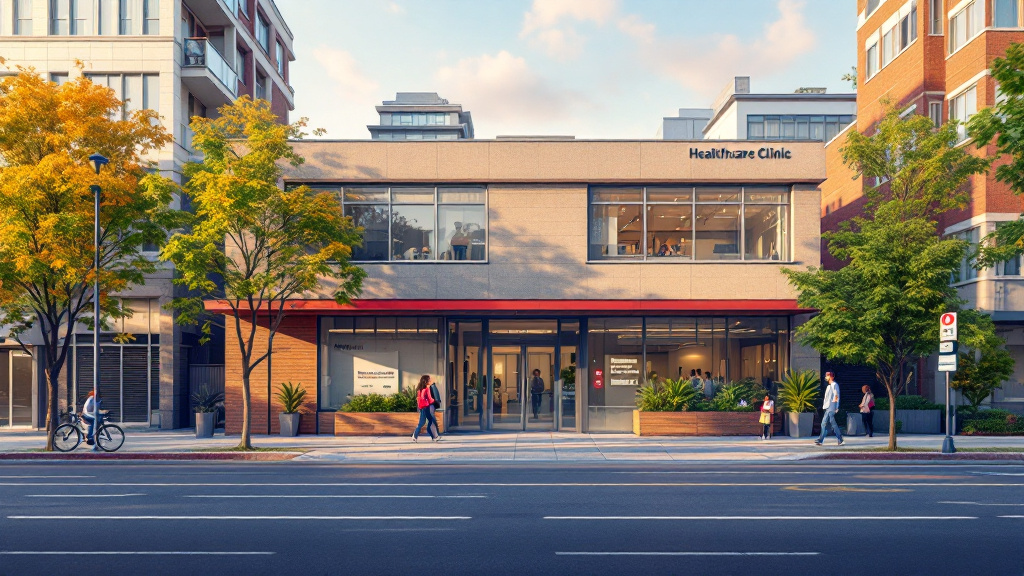
Prescription Drug Overdoses on the Rise in Bensalem
April 24, 2025
Bensalem Confronts Escalating Prescription Drug Crisis

The Link Between Fitness and Improved Mental Clarity
April 24, 2025
Unlocking Cognitive Power Through Movement

Creating Healthy Habits in Residential Recovery Programs
April 24, 2025
Building a Foundation for Long-Term Sobriety

Sober Holidays – You Can Do It
April 24, 2025
Celebrating the Season Soberly: Strategies for a Joyful, Alcohol-Free Holiday

What Is Rehab?
April 24, 2025
Understanding the Path to Recovery and Independence

Signs Your Loved One May Need a Detox Program
April 24, 2025
Understanding and Recognizing the Urgent Need for a Detox Program

The Dangers of Fentanyl and the Role of Detox in Saving Lives
April 23, 2025
Confronting the Fentanyl Crisis: From Risks to Recovery

Why Residential Treatment is Ideal for Individuals with Chronic Relapse
April 23, 2025
Breaking the Cycle: The Power of Residential Treatment in Chronic Relapse Recovery

The Role of Peer Support in Addiction Recovery
April 23, 2025
Harnessing Peer Power in the Fight Against Addiction

How to Overcome Procrastination During Sobriety
April 23, 2025
Conquering Delay: Strategies for Staying on Track in Sobriety

How to Handle Conflict in Recovery Environments
April 23, 2025
Building Resilience: Mastering Conflict Management in Recovery Settings

How to Handle Setbacks in Your Recovery Journey After Detox
April 23, 2025
Navigating the Challenges of Sobriety: Overcoming Obstacles Post-Detox

How Prescription Drug Addiction Impacts Relationships and How to Heal
April 23, 2025
Breaking the Silence: Navigating the Complexities of Prescription Drug Addiction in Relationships

Is Your Parent in Need of a Prescription Drug Rehab?
April 22, 2025
Uncovering the Hidden Signs of Prescription Drug Dependency in Seniors

What Does Porn Addiction Look Like
April 22, 2025
Understanding the Hidden Struggles of Porn Addiction

The Role of Empathy and Compassion in Supporting Others' Sobriety
April 22, 2025
Fostering Connection and Healing in Addiction Recovery

Healing Addiction with Emdr Therapy
April 22, 2025
Trauma-Informed Approaches Transform Addiction Recovery

Types of Alcoholics
April 22, 2025
Decoding the Diversity of Alcohol Dependence

How Residential Treatment Supports Individuals with Severe Addiction
April 22, 2025
Comprehensive Support Systems for Severe Addiction Recovery

What Is Codependency?
April 22, 2025
Unraveling the Complex Web of Dependence and Emotional Entanglement

How to Celebrate Milestones in Sobriety
April 22, 2025
Marking the Journey: Celebrating Your Sobriety Milestones

How Residential Treatment Can Help You Overcome the Shame of Addiction
April 22, 2025
Breaking Barriers: The Healing Power of Residential Addiction Treatment

